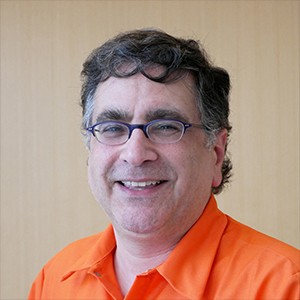News directly from Cornell's colleges and centers
Antaki, Wang elected to National Academy of Inventors
By Syl Kacapyr
For their work inventing heart-assist devices and biomaterials for tissue regeneration, respectively, Cornell Engineering professors James Antaki and Yadong Wang have been elected fellows of the National Academy of Inventors.
The 2022 class of fellows “represents a truly outstanding caliber of inventors. Each of these individuals have made significant impact through their work and are highly regarded in their respective fields,” according to a Dec. 8 announcement from the National Academy of Inventors.
For more than two decades, Antaki, the Susan K. McAdam Professor of Heart Assist Technology in the Meinig School of Biomedical Engineering, has contributed to the development of several heart-assist devices used clinically, including the Heartmate-II, Novacor, Ventracor, TandemHeart, and Levacor.
In 1997, Antaki led a team that produced the Streamliner heart-assist device – the world's first magnetically levitated rotodynamic blood pump to be tested in-vivo. In 2020, he received a $4.7 million grant for development and preclinical validation of the PediaFlow – an alternative to a heart transplant for infants with congenital heart failure.
“I’ve been inventing stuff since I was a kid,” said Antaki, who has 29 patents to his name, with six pending, for an assortment of medical and musical inventions – including what he describes as the world’s first electric harmonica. “I have no idea where my creativity comes from, but it’s an honor to apply that passion in a way that can improve people’s lives.”
Wang, the McAdam Family Foundation Professor of Cardiac Assist Technology in the Meinig School, focuses his research on creating biomaterials for applications in cardiovascular, nervous and musculoskeletal systems. His current projects include vascular grafts, protein delivery, and designing new biomaterials.
In 2020, he developed a new framework that makes biodegradable, metal-ion elastomer design a modular process, allowing for the mixing and matching of different metals with a single polymer. As a result, his research team created an elastic vascular graft that could help repair the heart and other soft tissues.
“I am honored to be elected to the National Academy of Inventors. At the same time, I feel humbled by the achievements of other fellows. I have much to learn to translate our research into products. That’s the goal of engineering,” said Wang, who has several licensed inventions, including a biodegradable polymer that is commercially available and approved for clinical use.
Despite the Meinig School’s short history – a Department of Biomedical Engineering was established in 2004 and the Meinig School was instituted in 2015 – it boasts four fellows of the National Academy of Inventors, more than any other school at Cornell.
“A central tenet to the fundamental research in Cornell Engineering is keeping one eye on how new knowledge can impact society,” said David Putnam, associate dean for innovation and entrepreneurship at Cornell Engineering. Putnam was elected a fellow in 2020, joining adjunct professor David Fischell '75, M.S. '78, Ph.D. '80, who was elected in 2016. “The work of Antaki and Wang exemplify the Meinig School’s dedication to science and its benefits to humanity. Induction into NAI is a clear acknowledgment of their impact.”
Antaki and Wang will be formally inducted during a ceremony at the National Academy of Inventors’ Annual Meeting on June 27 in Washington, D.C.
Media Contact
Get Cornell news delivered right to your inbox.
Subscribe


